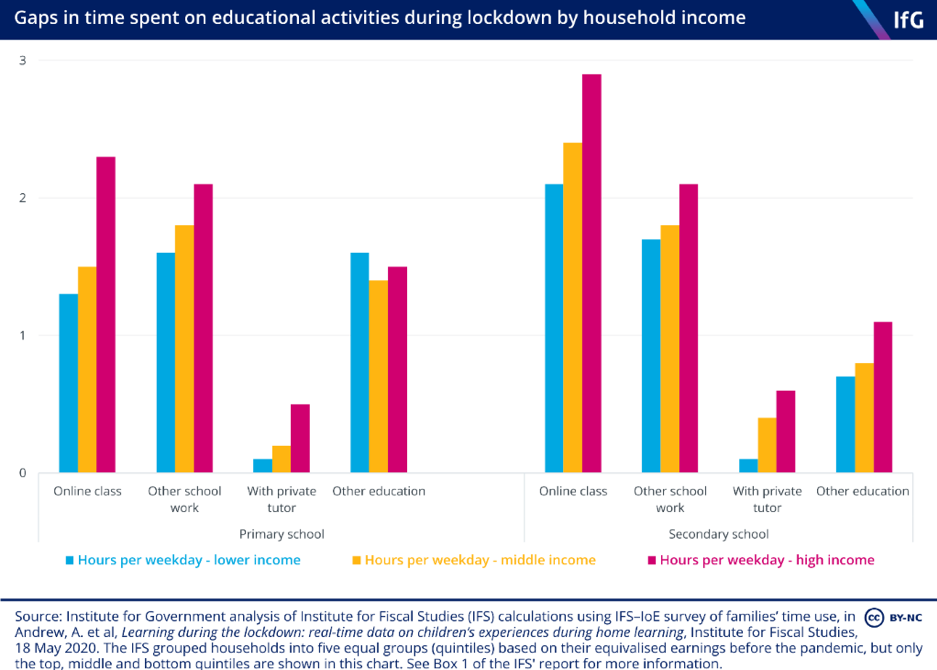Government needs a plan B in case it is forced to close schools again
The prime minister insists that all schools will open again in September, but he must be prepared in case a tactical retreat is needed
The prime minister insists that all schools will open again in September, but Benoit Guerin say he must be prepared in case a tactical retreat is needed
Most schools in England have been closed since mid-March to all pupils except vulnerable children and the children of key workers, although children in certain years at some schools were able to return for a few weeks before the summer holiday.
The prime minister has now made school reopening a national priority, and he is right to do so. Closed classrooms have led to a widening in educational inequality, and raised serious concerns about the state’s ability to safeguard vulnerable children when they are not in school. At the same time, childcare responsibilities are preventing many parents from fully returning to work.
However, given the possibility of future spikes in coronavirus nationally or locally, and teachers falling ill, it is implausible that all schools will be able to operate uninterrupted. Following June’s botched attempt to reopen schools, when the government failed to communicate its approach or work collaboratively with the education sector, the government needs to plan for how it will manage further lockdowns in the autumn.
It would be foolhardy to assume that schools will be able to stay fully open
The attempted June reopening was partly scuppered by the impossibility of returning all year groups while maintaining social distancing requirements, and only a substantial loosening of government guidance has paved the way for September’s restart. However, even a slight tightening of social distancing would mean many schools needed to close, or at least remain only partially open.
The government’s own research has raised concerns about transmission among children aged 10 and above, with secondary school children more likely to travel further, sometimes on public transport, and to be taught in mixed classes comprising pupils from the entire year group. Just one Covid-19 case in a classroom, teacher or pupil could see entire year groups sent home to self-isolate, with pupils once again needing to rely on remote learning.
Government needs better preparations for the prospect of a return to online teaching
More children can now access online education than before the pandemic, and the education secretary has announced that the government will provide additional laptops and routers in case more pupils need to self-isolate. But various studies have found that disadvantaged pupils have had less access to high-quality remote lessons during lockdown and haven’t engaged with online learning as much as their better-off peers. For example, in April, around a third of private schools ran four or more live daily online lessons a day, compared to only around 5% of state schools. Such discrepancies are increasing the attainment gap and entrenching educational inequality.

The government has already announced £1 billion 'catch up' funding for pupils, including a £350 million National Tutoring Programme for vulnerable and disadvantaged children. But it needs a plan to ensure that the gap between rich and poor doesn’t grow again if further lockdowns are required.
Options for enabling learning while reducing the risk of transmission include securing extra space for classrooms, introducing a ‘one week on, one week off’ rota for school attendance, and improving access to remote learning. However, each of these proposals presents practical difficulties and will require serious thinking, planning and investment if they are to work.
The government needs to communicate and collaborate to make its plans succeed
The government must also improve its communications with unions, schools and the public. Months of erratic and reactive decision making, in which announcements have been left to the last minute only to be reversed a few days later, have damaged trust. And the failure to prevent predictable problems with exam grading, and then to quickly resolve the situation once public anger became clear, further damaged relations with the education sector.
While restoring credibility will be difficult, it is not impossible. Teachers, parents and the Labour opposition are all agreed on the importance of children returning to school in September, and there will be a concerted effort to avoid a repeat of this year’s exam disruption in 2021. By identifying and being honest about obvious problems ahead, taking a more collaborative approach, and communicating clearly, the government can improve its own performance.
Most of the government's mistakes were avoidable. It has had time to study, to learn, and will now resit the same tests. To repeat those mistakes in the academic year ahead would be unforgivable.
- Topic
- Public services
- Keywords
- Schools Education Government communications
- Administration
- Johnson government
- Department
- Department for Education
- Publisher
- Institute for Government